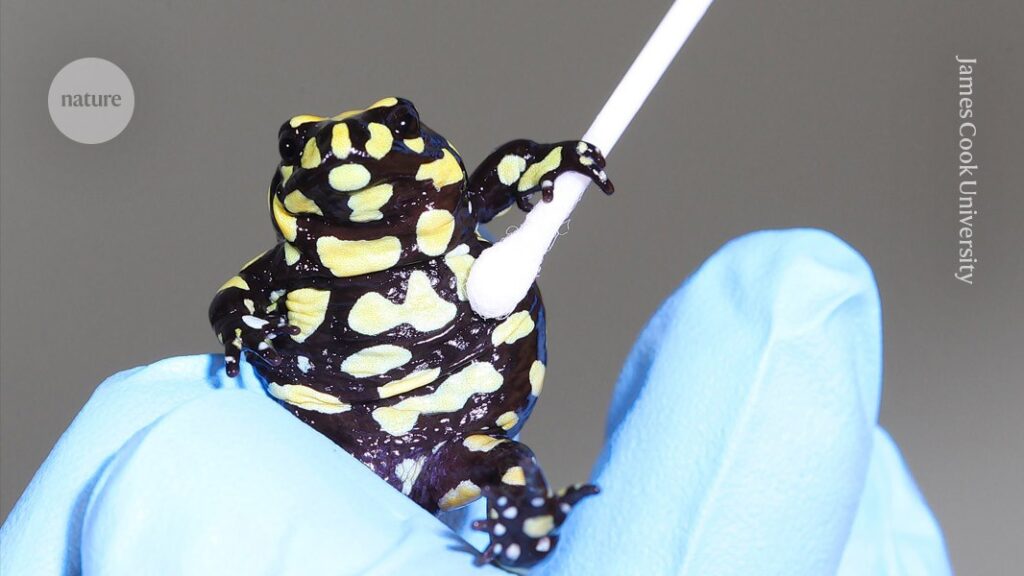A corroboree frog is tested for chytrid fungus. Introducing genetic changes to these frogs could help to make them more resistant to infections.Credit: James Cook University
The global conservation community is debating whether to ban the release of genetically modified organisms into the wild. Dozens of non-governmental organizations have called for a moratorium on field applications of synthetic biology — a technology being studied as a tool to fight diseases, control pests and help endangered species — saying that the approach has unpredictable consequences. But some researchers argue that an outright ban is too restrictive, and could have negative consequences for human health and biodiversity.

How genetically modified mosquitoes could eradicate malaria
A proposal for a ban will face a vote next week at a congress of the International Union for Conservation of Nature (IUCN) in Abu Dhabi. The IUCN brings together governments and civil society organizations to guide global conservation policy. Although decisions made by its members are not legally binding, they do influence legislation in many countries, says biologist Piero Genovesi, head of the Wildlife Service at the Italian Institute for Environmental Protection and Research in Rome.
If members vote in favour of the proposed ban, it “could have stronger impacts in areas like Europe or Australia, where there are many lines of research focused on developing new tools based on synthetic biology for improving the efficacy of conservation action”, Genovesi says. He is among more than 240 scientists who have so far signed an open letter asking IUCN members to reject the moratorium.
Ongoing debate
This is not the first time conservationists have debated whether the genetic engineering of wild species should be allowed. A moratorium on gene drives, a way of introducing engineered genes so that they spread rapidly through a population, was proposed at the United Nations Convention on Biological Diversity meeting in 2016, and again in 2018 — but was ultimately rejected.
Those in favour of the latest proposal argue that the effects of genetic biotechnologies on nature — and on insects in particular — are hard to predict and could be irreversible. “These new technologies risk adding to the pressures already threatening pollinators,” said Joann Sy, scientific adviser at POLLINIS, a non-profit organization based in Paris that is focused on the conservation of bees and other pollinators, in a statement released by the organization. More than 80 researchers have signed an open letter in support of the moratorium, which says that the deployment of genetically modified organisms is “advancing faster than safety and risk assessment can keep pace” and that “no release should occur unless and until it can be demonstrated that there are no direct or indirect risks to pollinators, biodiversity or ecosystems”.

Genetically modified apple reaches US stores, but will consumers bite?

